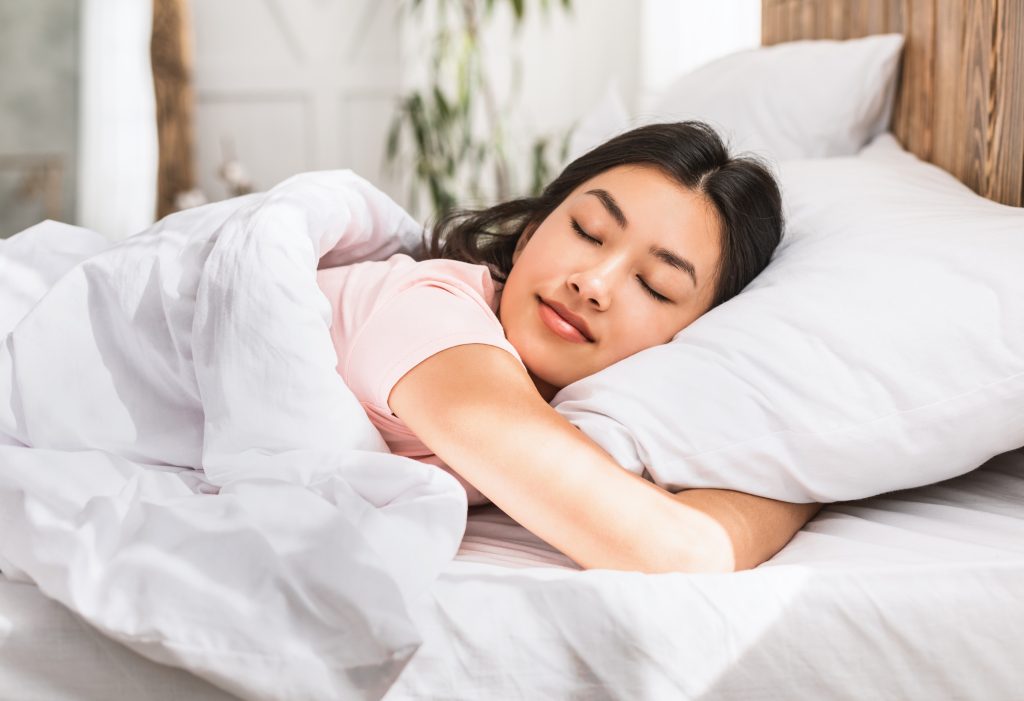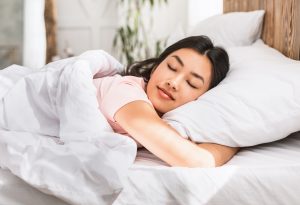SleepMaxxing: The Ultimate Guide to Maximizing Sleep for Optimal Health.
Sleep is one of the most critical elements of human health, yet it’s often neglected or overlooked. In our fast-paced, modern world, many people struggle to get the sleep they need for physical, mental, and emotional well-being. Enter sleepmaxxing – a term gaining popularity for the concept of optimizing sleep to enhance overall life quality. In this article, we’ll dive deep into the practice of sleepmaxxing, offering practical advice, new insights, and expert opinions that you won’t find anywhere else.
What is SleepMaxxing?
SleepMaxxing is the practice of going beyond traditional sleep hygiene and maximizing every aspect of your sleep to promote peak health, performance, and recovery. Unlike the general recommendations that emphasize “7-9 hours of sleep,” sleepmaxxing focuses on the quality, timing, and environment of sleep. The goal is to tap into the power of restorative sleep to improve energy, cognitive function, mood, and long-term health.
The Science Behind SleepMaxxing
Understanding the science of sleep is crucial to sleepmaxxing. Sleep affects virtually every system in the body, including memory, immune function, hormone regulation, and emotional well-being. The sleep cycle consists of several stages, including:
- NREM Sleep: This stage is split into three phases (N1, N2, and N3), where deep, restorative processes like tissue repair and growth occur.
- REM Sleep: This phase is characterized by rapid eye movement and is crucial for memory consolidation, emotional regulation, and cognitive function.
Research by experts such as Dr. Matthew Walker, a neuroscientist at the University of California, Berkeley, underscores the importance of sleep in overall health. Dr. Walker, in his best-selling book Why We Sleep, explains that sleep is essential for memory formation, immune function, and long-term disease prevention. According to Dr. Walker, a lack of sleep can lead to cognitive decline and even premature aging.
Key Pillars of SleepMaxxing
1. Sleep Environment Optimization
Creating the ideal environment for sleep is one of the first steps in sleepmaxxing. Factors like light, sound, temperature, and even air quality play a significant role in how well you sleep.
-
Lighting: Exposure to blue light before bed can disrupt your natural circadian rhythms. Use dim, warm-toned lights in the evening and limit screen time at least 30 minutes before bed. Some experts suggest using blue light-blocking glasses to further reduce the impact of screens on sleep quality.
-
Temperature: A cooler room temperature (ideally between 60-67°F or 15-20°C) helps signal to your body that it's time to sleep. A study from Harvard Medical School suggests that cooler temperatures improve sleep quality and reduce the time it takes to fall asleep.
-
Noise Control: Even the smallest noises can disrupt deep sleep. If you're sensitive to noise, consider using white noise machines or earplugs to create a quiet, calming environment.
-
Bedding and Comfort: Your mattress and pillows should support your preferred sleeping position. An unsupportive mattress or pillow can result in poor sleep quality and body aches. Invest in high-quality bedding, and don’t underestimate the importance of comfort.
2. Sleep Timing: The Power of Consistency
One of the most powerful tools for sleepmaxxing is timing. Consistency in your sleep schedule is crucial. Going to bed and waking up at the same time every day – even on weekends – helps stabilize your circadian rhythm. This rhythm regulates key hormones like melatonin, which controls your sleep-wake cycle.
Dr. Michael Breus, a clinical psychologist and sleep expert known as "The Sleep Doctor," emphasizes that consistency is vital for maintaining the quality of sleep. He recommends the "10-3-2-1-0 rule" for optimal sleep:
- 10 hours before bed: No caffeine
- 3 hours before bed: No large meals
- 2 hours before bed: No work or intense physical activity
- 1 hour before bed: Wind down with a calming routine
- 0 distractions: Keep your bedroom tech-free to improve sleep quality
3. Nutrition for Better Sleep
What you eat directly impacts the quality of your sleep. Certain foods and drinks can either promote or hinder your ability to get restful sleep.
-
Foods that promote sleep: Try incorporating foods rich in magnesium (such as spinach, almonds, and avocados), tryptophan (turkey, chicken, eggs), and melatonin (cherries, grapes, tomatoes) to promote better sleep.
-
Foods to avoid: Avoid heavy meals, caffeine, and alcohol too close to bedtime. Caffeine, found in coffee, tea, and some sodas, can stay in your system for hours, disrupting your ability to fall asleep.
Dr. Michael Grandner, a sleep specialist at the University of Arizona, underscores that sleep is highly influenced by what you consume. He suggests focusing on a balanced diet that includes healthy fats, lean proteins, and fiber-rich carbs to maintain healthy sleep patterns.
4. The Role of Exercise in SleepMaxxing
Regular physical activity is key to improving sleep quality. Studies have shown that people who exercise regularly tend to fall asleep faster and experience deeper sleep. Exercise promotes the release of endorphins, which help you relax and feel good.
However, timing matters. Exercising too late in the evening can increase adrenaline levels and elevate your heart rate, making it harder to fall asleep. Aim to complete moderate-to-vigorous exercise at least 3 hours before bed.
5. Managing Stress and Anxiety for Restful Sleep
Stress and anxiety can keep you up at night, preventing you from achieving deep, restorative sleep. To combat this, consider incorporating mindfulness and relaxation techniques into your routine.
- Meditation: Studies show that mindfulness meditation can help reduce the time it takes to fall asleep and increase sleep quality.
- Breathing exercises: Try the 4-7-8 breathing technique, which involves inhaling for 4 seconds, holding for 7 seconds, and exhaling for 8 seconds. This has been shown to activate the parasympathetic nervous system, promoting relaxation.
6. Sleep Supplements: Do They Work?
While the best way to improve sleep is through natural methods, many people turn to sleep supplements. Some of the most popular supplements include melatonin, magnesium, and valerian root.
- Melatonin: This hormone plays a crucial role in regulating your sleep-wake cycle. Some research suggests that melatonin supplementation may help people with insomnia or those experiencing jet lag.
- Magnesium: Magnesium is known for its muscle relaxation properties and may improve sleep quality in people who are deficient in it.
- Valerian Root: A popular herbal supplement that has mild sedative properties. Research on its effectiveness is mixed, but some users report improved sleep quality.
It's important to consult with a healthcare provider before using supplements, as they may interact with other medications or conditions.
7. Tracking Sleep with Technology
Advancements in technology now allow us to track our sleep with a high degree of accuracy. Wearables like the Oura Ring and Fitbit can track sleep cycles, heart rate, and movement, offering insights into your sleep patterns. These devices can help you fine-tune your sleepmaxxing strategy and identify areas that need improvement.
Research by Dr. Andrew V. S. S. of the University of Oxford, who has extensively studied wearable sleep technology, indicates that these devices can provide actionable data that help users optimize their sleep habits over time. However, Dr. S. emphasizes that users should not rely entirely on devices but use them as one tool in a broader sleep optimization strategy.
Expert Advice and Insights for SleepMaxxing
Incorporating expert advice can further elevate your sleepmaxxing efforts.
Dr. Sara Mednick, a sleep scientist and professor at the University of California, Riverside, emphasizes that getting quality sleep is far more important than the quantity. Dr. Mednick's research suggests that focusing on sleep quality – including deep sleep and REM cycles – rather than just clocking in a certain number of hours is a better indicator of health. She recommends aiming for at least one 90-minute deep sleep cycle every night to ensure the body gets the rejuvenation it needs.
New Insights: Personalized SleepMaxxing
One of the newest trends in sleep science is the concept of personalized sleepmaxxing. This approach tailors sleep optimization techniques to an individual’s unique biological rhythms and needs. Personalized sleep assessments are now becoming available through genetic testing, wearable devices, and sleep studies.
A cutting-edge study from Dr. Claudia Aguirre at the University of California, Los Angeles, found that personalizing sleep recommendations based on genetic data (such as SNPs affecting circadian rhythms) can significantly enhance sleep outcomes. Her research has opened the door to a more tailored, data-driven approach to sleepmaxxing that can help individuals achieve their peak health and performance.
Mastering SleepMaxxing for a Better Life
Sleepmaxxing is more than just getting eight hours of sleep. It’s about creating an optimal environment, sticking to a consistent routine, nourishing your body, and managing stress to ensure you get the highest-quality sleep possible. Incorporating expert tips, such as Dr. Michael Breus' 10-3-2-1-0 rule and Dr. Sara Mednick’s focus on deep sleep cycles, can dramatically improve your sleep quality. Combining these insights with personalized approaches will allow you to fully unlock your potential, improving everything from cognitive performance to overall well-being.
By prioritizing sleepmaxxing, you’ll not only improve your sleep but also your life – achieving optimal health, performance, and mental clarity.





















